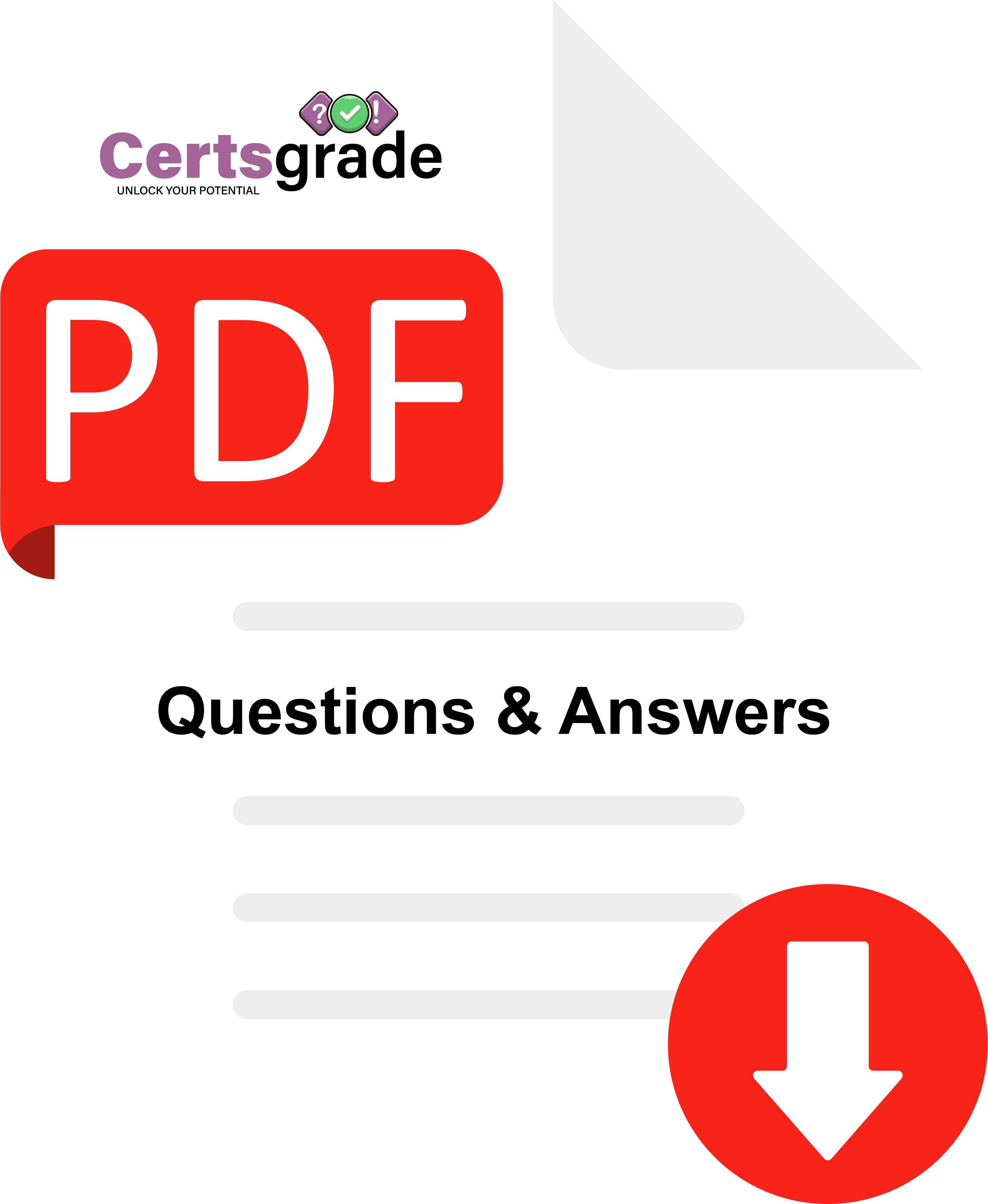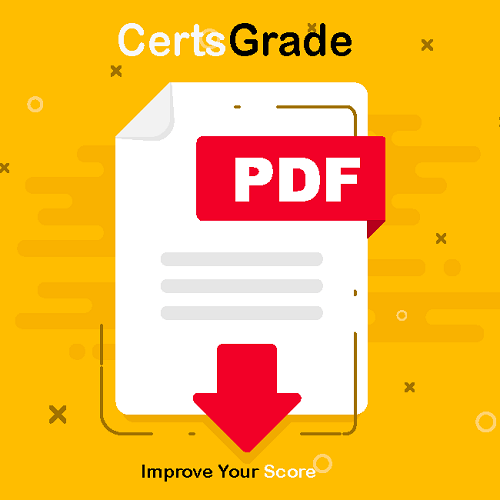 Lean-Portfolio-Manager
Lean-Portfolio-Manager
- Last Updated :
Latest Lean-Portfolio-Manager Questions Answers
$49.00
The printable PDF format is incredibly convenient for studying on the go. A big thumbs up.
CertsGrade's resources were highly effective in helping me prepare for and pass the Lean-Portfolio-Manager (SAFe® 4 Lean Portfolio Manager) exam.
CertsGrade's 90-day free updates are a great advantage, ensuring I always have the latest study resources.
PDF Dumps for Certsgrade Lean-Portfolio-Manager Exam Practice
Lean-Portfolio-Manager Exam Guide
As businesses continue to embrace the Agile methodology, the need for skilled Lean Portfolio Managers (LPMs) has become increasingly important. The Lean-Portfolio-Manager certification exam is designed to test a candidate’s knowledge and expertise in managing portfolios using the Scaled Agile Framework (SAFe). In this article, we will discuss the exam’s structure, content, and tips to help you achieve this Scrum certification.
Lean-Portfolio-Manager Exam Structure
The Lean-Portfolio-Manager exam is a computer-based test consisting of 45 multiple-choice questions. The test duration is 90 minutes, and the passing score is 71%. This Scrum exam is administered by the Scaled Agile Academy and can be taken online or at a testing center. The Lean Portfolio Manager exam covers the following topics:
- Introduction to Lean Portfolio Management – This section covers the fundamentals of Lean Portfolio Management and its importance in Agile enterprises.
- Establishing Strategy and Investment Funding – This section covers the process of aligning portfolio strategy with enterprise strategy and funding initiatives based on priorities.
- Agile Portfolio Operations – This section covers how LPMs manage portfolio operations in a Lean-Agile organization, including the role of the LPM in Agile Release Trains and the process of continuous value delivery.
- Lean Governance – This section covers the principles of Lean Governance and the role of LPMs in ensuring compliance with regulatory and organizational standards.
- Lean-Agile Leadership – This section covers the leadership skills required of an LPM to inspire and guide teams toward a shared vision.
Tips for Lean-Portfolio-Manager Exam Success
- Study the Certsgrade’s Lean-Portfolio-Manager course materials thoroughly:
Certs grade provides extensive course materials that cover all the topics included in the exam. The course materials include study guides, practice tests, and sample questions. Make sure to review the materials thoroughly and understand the concepts before taking the exam. - Take practice tests:
Practice tests are an excellent way to familiarize yourself with the exam format and identify areas that require additional study. Certsgrade.com provides practice tests that simulate the actual exam experience, allowing you to assess your readiness for the real exam. - Join a study group or seek guidance from a mentor:
Joining a study group or seeking guidance from a mentor can help you gain a better understanding of the exam content and get insights into how to approach the exam questions. Collaborating with others can also help you stay motivated and accountable during your exam preparation. - Manage your time wisely during the Lean-Portfolio-Manager exam:
The Lean-Portfolio-Manager exam is time-limited, so it’s essential to manage your time wisely during the test. Make sure to read each question carefully and answer the easier questions first to maximize your time.
Course Content for Lean-Portfolio-Manager Exam
This course is offered by our website Certsgrade.com to help students in their preparation. The exam topics in this course are mentioned generally as they are taken from previous exam versions however you will get a lot of additional resources for preparation such as pdf dumps, exam questions & answers for practice, study guide, and other e-learning resources for free. It is recommended to visit the official SAFe site to get the authentic exam info:
Module 1: Introduction to Lean Portfolio Management
- Understanding Lean Portfolio Management
- Benefits of implementing Lean Portfolio Management
- Understanding the role of a Lean Portfolio Manager
- Defining the Lean Portfolio Management Framework
Module 2: Lean-Agile Principles and Mindset
- Overview of the Lean-Agile Principles and Mindset
- Applying the principles to portfolio management
- Understanding the importance of a Lean-Agile Mindset in portfolio management
- Identifying the key elements of a Lean-Agile Mindset
Module 3: Agile Portfolio Operations
- Understanding Agile Portfolio Operations
- Overview of the Portfolio Kanban system
- Applying the Portfolio Kanban system
- Measuring portfolio performance
Module 4: Lean Governance
- Overview of Lean Governance
- Identifying governance roles and responsibilities
- Understanding the Lean Governance process
- Managing strategic themes
Module 5: Strategy and Investment Funding
- Understanding the strategy and investment funding process
- Applying the Lean Startup principles to investment funding
- Creating and maintaining a Lean Portfolio Budget
- Understanding how to apply Portfolio Value Streams to investment funding
Module 6: Agile Portfolio Planning
- Overview of Agile Portfolio Planning
- Understanding the role of the Portfolio Vision
- Defining and prioritizing Portfolio Epics
- Identifying and prioritizing Portfolio Features
Module 7: Agile Portfolio Operations
- Understanding Agile Portfolio Operations
- Overview of the Portfolio Kanban system
- Applying the Portfolio Kanban system
- Measuring portfolio performance
Module 8: Continuous Portfolio Delivery
- Overview of Continuous Portfolio Delivery
- Implementing Lean Portfolio Operations
- Measuring and improving Portfolio Performance
- Creating a culture of continuous improvement
The Lean Portfolio Manager exam is a comprehensive test that assesses a candidate’s knowledge and expertise in managing portfolios using the SAFe framework. By following the tips outlined in this article, you can increase your chances of success on the exam and become a certified Lean Portfolio Manager. Remember to study the course materials thoroughly, take practice tests, seek guidance from mentors, and manage your time wisely during the exam. In conclusion, this IT course provides a comprehensive overview of the latest technologies and industry best practices. We hope you found it useful. Keep learning and growing!
Follow us on:
